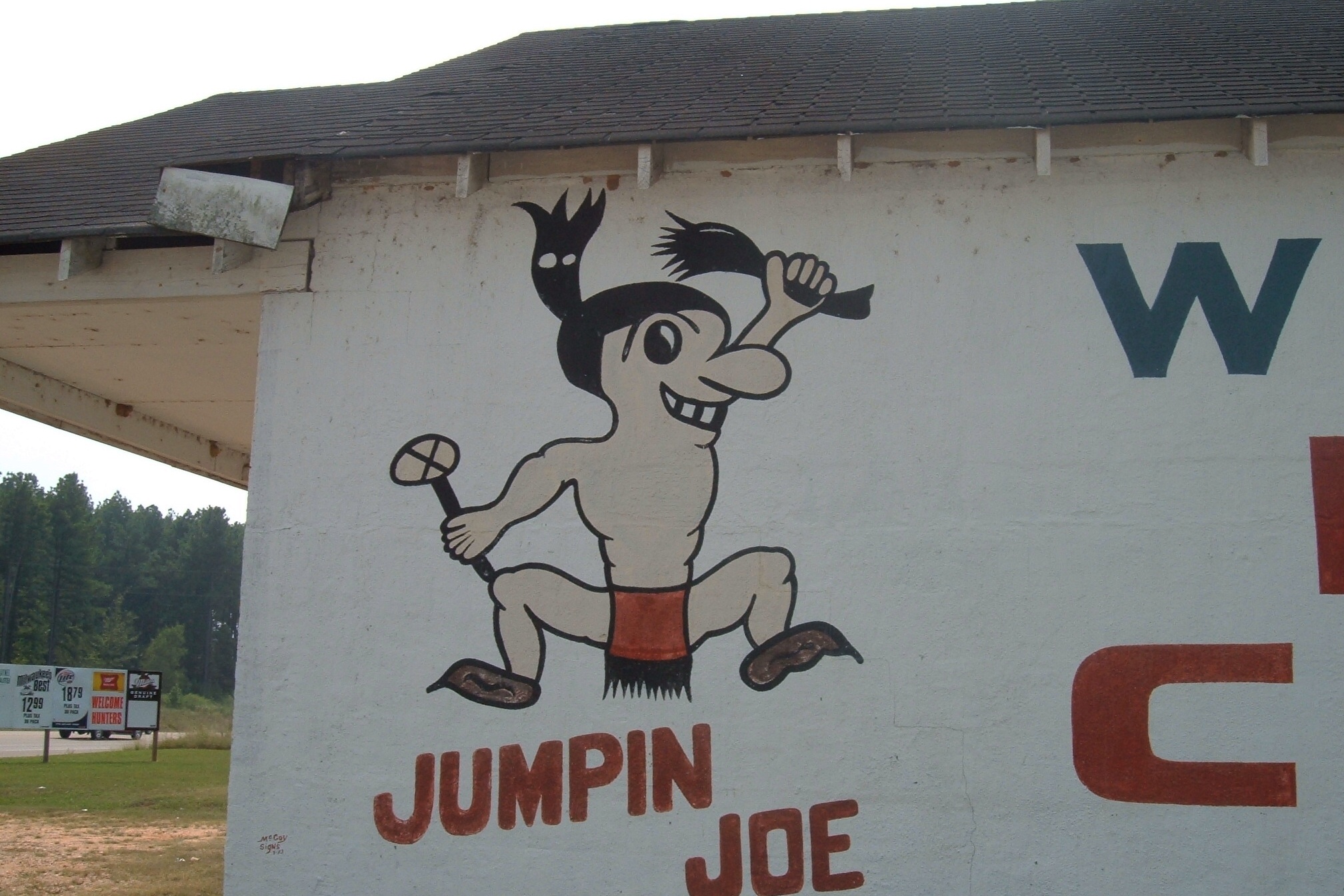Tonight last ASU home game for Indians
Many will grieve the retirement of the university’s 77-year-old athletics nickname and mascot family during half-time of the men’s basketball game. Some are relieved to see the last of the stereotypic characters that have been gradually watered down over the years.
Like many alumni, she is proud of the university and its mascots.
“I thought the Indian family represented strength and pride and heritage, and I don’t understand why that was felt to be demeaning,” she said.
A loincloth-clad caricature known as “Jumpin’ Joe” was adopted in 1937. He was amended to “Runnin’ Joe” in 1994. Three years later, the university discarded the cartoon image and incorporated the letters “ASU” into an Indian headdress.
John Phillips, a banker who lives in West Plains, Mo., portrayed the brave from 1969-73. He incorporated Indian-style dancing that he learned in a scouting organization as a youth. He remembers how excited ASU fans would get when the chief, brave and princess would ride around the football stadium on bareback.
After a controversy around the school’s “Jumpin’ Joe” mascot, the Indian family fell out of favor, Phillips said. In the early 1990s, he was reminiscing with ASU alumna Genie Harrell wife of the late All-American running back Calvin Harrell—about the Indian family.
They resolved to revive the Indian family. With approval from the university and the help of the alumni association, they auditioned for students who could ride horses and play the parts.
David Elliott, Cory Jennings and Jodi Arns Moody were selected, and Phillips and Harrell made their buckskin-and-beads costumes. An American Indian history and culture buff, Phillips said, he attempted to make accurate costumes.
Phillips said he consulted with some American Indians in the area, but he didn’t check with the federally recognized Osage Nation. University legend says that “Chief Big Track,” the main mascot, is named after an Osage chief. Phillips says the mascot is really a general Southern Plains Indian, and the chief is named for the track that encircled the football field in a former stadium. The chief would ride a horse in full gallop around the track after each touchdown.
And this is what real Indians should cherish and applaud? Get serious.
The Jumpin' Joe caricature is the worst of the offenses by far. This mascot was so embarrassing that ASU finally got rid of him. Yet ASU supporters want to remember him and all he stood for.
Did Jumpin' Joe embody "strength and pride and heritage"? Is that why he held a stone club and a scalp? I guess his strong, proud heritage involved killing and scalping people like the savage he so obviously was.
60 years of Jumpin' Joe
If Jumpin' Joe wasn't an honorable image, why did ASU keep him for 60 long years? I'll tell you why. Because a mascot is like a pet and an athlete is like an ape. Neither one is considered a full-fledged person. Jumpin' Joe would make a great circus performer or cartoon character, but you wouldn't want him to serve on a jury or marry your daughter.
ASU's history makes Joe's subhuman status crystal-clear. The school nickname was first Gorillas, then Warriors, then Indians. In other words, gorilla = warrior = Indian. No wonder Jumpin' Joe looks like a big baboon. In the eyes of ASU, that's what "Indians" are: trained monkeys who perform athletic tricks in front of an audience. They're mock warriors in a make-believe game, not real warriors.
So good riddance to Jumpin' Joe and the "Indian family." They clearly perpetuated the idea that Indians were noble savages, or just plain savages, from the distant past. ASU embraced these stereotypes because it kept Indians, like apes and other subhuman creatures, at a safe remove.
Now ASU supporters are crying because they don't want to give up their blissful ignorance. Denying their mascots would mean acknowledging that they've been wrong about Indians all along. They'd have to admit that Indians had complex histories, cultures, and religions and we ruthlessly wiped them out.


7 comments:
You're just another idiot that has nothing valuable to add. Go Indians
Wow, that was deep. Thanks for sharing your insight with us. I'm glad to see your college education isn't going to waste.
To quote you, "You're just another idiot that has nothing valuable to add." Get lost, stereotypical "Indians."
What about the fighting Irish? We should put a stop to that. Irish= gorilla right? Based on your logic
I addressed that case long ago in Fighting Sioux vs. Fighting Irish. Read it to find out why "Fighting Irish" isn't the same as an Indian mascot.
what about the celtics or the new york Knickerbockers? or the Union dutchman? all of these teams have and due portray europeans in a stereotypical and arguably demeaning manner.
Go colgate Red Raiders, Dartmouth Stanford, and ASU Indians!!!!!
Chief wahoo is the man
Are there any stereotypical Celtic, Knickerbocker, or Dutch sports mascots? Are the Celts, Knickerbockers, or Dutchmen protesting them?
No? Then your questions are pretty much irrelevant, I'd say.
What a bunch of politically "correct" nonsense! Most Native Americans could care less about team mascots. I seriously doubt anyone at ASU intended to offend Native Americans or any other group. Their mascot was a source of pride. Attacks like this article are politically motivated.
Post a Comment